Graham Reid | | 11 min read
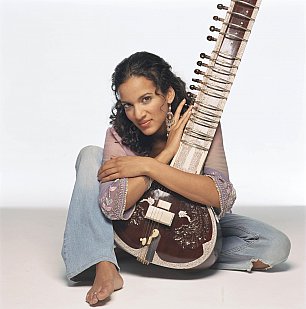
As two Lennons and any number of Marleys might tell you, it isn’t easy carrying the name of a famous musician father, especially if you want a career in the business yourself.
Certainly doors may open that otherwise wouldn’t -- but because of that critics and the public often treat your career with some scepticism, you have to grow up musically in public, and your best work will invariably be compared with that of your legendary dad.
Consider then the hard haul before Anoushka Shankar whose father Ravi has been India’s best known -- perhaps only internationally known -- musician for over five decades.
Sitar player and composer Ravi Shankar was celebrated for his duets with classical violinist Yehudi Menuhin in the 50s, his popularising of the instrument through his friendship with Beatle George Harrison in the 60s and 70s, innovative compositions with Philip Glass, soundtracks and sell-out concerts . . .
Rightly hailed as “the godfather of world music” by Harrison, Shankar at 87 still performs -- and often these days with his sitar playing daughter Anoushka whom he started teaching at age eight and introduced in her professional debut on a New Delhi stage at 13.
Anoushka Shankar -- with striking good looks and the accent of well-bred Anglo-American graduate -- has enjoyed a career notable for its successes than the early criticisms she encountered for being her father’s daughter in a musical culture where women are rarely frontline instrumentalists.
Her first two albums -- Anoushka in 1998 when she was 17 and Anourag two years later -- had modest success but her Live at Carnegie Hall in 2001 was nominated for a Grammy.
Her more recent albums Rise (2005, also Grammy nominated) and Breathing Under Water of last year with Karsh Kale incorporated techno beats, Western instruments and singing -- and have opened more musical doors for her.
And as well as finding a new and younger audience, she has been honoured with an almost embarrassingly long list of music and culture awards. In the past five years she performed at the tribute concert for the late George Harrison, has played the Royal Albert Hall and Carnegie Hall, and appeared in the Indian movie Dance Like A Man. In 2004 Time magazine hailed her as one of 20 Asian Heroes, and this year she was nominated on the list of Young Global Leaders at the World Economic Forum. In March she was on the cover of the first issue of India’s Rolling Stone.
If Anoushka, now 27, feels any pressure however she certainly doesn’t betray it.
Witty, articulate and very much the world citizen who grew up in San Diego and when not touring divides her time between the US, Britain and India, she considers what is already a long career.
For someone so young you seem to have a long career behind you already.
Yes, I realised a few months ago that half my life up until this point I have been on the road.
I spoke to your father some 12 or 14 years ago and at that point he had to leave a lesson he was giving to you. But I’ve read in his autobiography Raga Mala that it was actually your mother Sukanya‘s idea that you be taught sitar.
It was yes, but I don’t know if it was in any way that he didn’t want to teach me but at that point he had wanted to wait perhaps until I showed some kind of interest. But my mom had already started teaching me basic elements of singing from when I was much younger, so she knew I had that aptitude. Her theory was that children pick things up so much quicker the younger they are, so it was better to start and I could always stop if I didn’t like it. So it definitely was her encouragement. 
In his book he also talks about what a hard taskmaster he was to students, was he the same with you, or did he treat you any differently?
More than being his daughter I think because I was so young. It’s not that he didn’t make clear what his expectations were, I was aware from very early on the importance of dedication and practice that was required in this music. However the method of teaching was peppered with stories -- and he couldn’t lose his temper in quite the same way if I wasn’t picking things up. It was still very intense and disciplined, but at the same time it wasn’t anything like what he went through.
Yes. I have read what he went through.
It wasn’t even quite as much as what his other students went through I have to say! (laughs)
This is a very different system of teaching however, the gurukul system of passing the technique and knowledge down through a family lineage. That isn’t so common in the West as you would know from growing up in the West.
Yes, it is so ingrained from having been an oral tradition for so long that it is essential that you pass on that part. With it not being a written-down music it becomes the responsibility of those who know it to pass on the nuances and intricacies, and the compositions or whatever it may be.
You were of course very young when all this happened. I guess by being so young you were maybe not quite so aware of the pressure and expectation that was out there? Or were you very aware of being Pandit Shankar’s daughter.
I think I was aware of it but was lucky my parents created a little bit of a bubble around me as much as possible. But even within that situation they would periodically sit me down and would always say the same thing, that they loved me learning and loved me to play, but that in no way were they forcing me -- and that if there was anything else I would rather do that was fine too. So every few months I would get that discussion again, but I would be, “No I’m okay, I like it and I want to learn more”.
But I imagine on the other side you were just the girl who went to high school and went to the prom and listened to rock music on the radio like everybody else your age?
Absolutely. 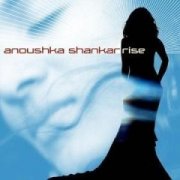
I know that when you first started playing, and even on your early albums, you were doing much of your father’s music -- but like him you have created your own path. I’m thinking of the albums Rise and Breathing Under Water -- you really have kept those other doors open for yourself.
I think I did. It started more of a personality thing than a music thing, just the human being I am. But I always thought it was possible and okay, and that it could even be good, to have on the one side the ancient and traditional and yet not necessarily fit the cliché of what that means. And it was always a priority for me that I would continue to go to public school and I was going to make sure I could have time to do all of those things. And that continued as I was growing up, I had many dispirit interests around the world and I guess it just hit that point, like you said, that on a creative level it hit a boiling point at around 20 or 21. Everything hit at the same time. So I needed my music to reflect me a little more truly, which obviously encompasses Indian music. But there were other elements there of course.
It would seem natural that we reflect the world around us to some extent and although your father has had an illustrious career as a traditional musician he was also working with Sir Yehudi Menuhin in the late 50s, and Philip Glass and George Harrison in the 60s.
Yes, and you know there is such a short memory in popular culture and most journalists constantly ask me these questions about whether I am breaking away from his tradition and I’m like, “You know, if you knew what his tradition was, it was to break away”. (Laughs)
You have embarked on other things, you appeared in the film Dance Like A Man -- which I have to be honest I haven’t seen -- but that was by director Pamela Rooks?
That’s right. I was just a supporting actress and played the daughter of the couple the story revolved around and there are pressures in their relationship. I was very attracted to that as oppose to other scripts that were coming my way which were, let’s say, Bollywood mainstream, it seemed a little more developed. I very much enjoyed the experience and I would love to do more as and when . . . I’ve had a lot of offers, but not that I need to do them because I already have a great music career. (Laughs)
These film offers, are they people saying we have this part of a young woman who is the daughter of a famous man . . ? Is it a bit like that?
(Laughs) Yes, there have been a couple of those on the Hollywood side where there is this kind of exotica Indian sitar-playing role. But in India the offers are for a little more mainstream things. I’m not saying I would never do that, but that is not where my interest lies.
You are in the fortunate position of being able to pick and choose from such things, but your music career is paramount and that is the one you must service?
That is what always comes first. And I’m also touring within, at least halfway, a more classical circuit which is booked so much further in advance. These offers come just a few months in advance -- but I am already booked for the next few years.
And when you come to New Zealand you are coming with a fairly traditional group but I note that one of the players in the band is a pianist and another plays cello as well. What kind of programme would you be doing?
Particularly in Australia and New Zealand and the Far East, they are places I go through so rarely -- and in Australia and New Zealand for the first time actually -- I want to combine a little more classical than I have been doing for the last year. So I am planning to start the concert in a classical vein and have maybe half an hour of classical ragas and adding textures in the second half. Even in the other part of the programme, although it is not purely classical it is still drawing from Indian classical raga in everything I write, it is in there.
I guess you set the template and announced yourself to people with the Rise album and then Breathing Under Water consolidated and validated the idea that you draw on the tradition but advance it in particular ways.
Thank you, yes that was exactly it. 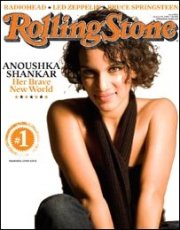
Let me now ask you about the other things I see appended to your name, they always start “the first Indian woman to. . . “ or “the first Indian woman who . .” You are on the cover of the first edition of the Indian Rolling Stone, you are one of the young leaders in the Global Forum, Time magazine picked you as one of the most influential people of your generation and so on. How do you feel about these things which seem to come your way?
It depends, some are awards which other than being an ego-booster and some validation for what you do they don’t have much to do with me directly, so they are nice to hear and are a tagline -- and funnily they are what people are more impressed by. But then there are certain things which I actually value, like I was the first person to actually play in particular place. That feels a little more valuable and hopefully I have opened the pathway for more people to go in that direction. That makes me feel hopeful, but that is not about what I value in myself or what I am doing.
What about being one of the young global leaders, does that put pressure on you to be something in the public arena?
I don’t think I really feel pressured by that because from the beginning one of the ways I have shaped my career is by not having shaped it, I always had this non-image image when I lived in India. I was always very firm that I was always going to be myself and for the most part I have been lucky that has gone over well and been appreciated. So when something like that, being in a youth leader position, comes it is because I am talking to kids in college and doing it from a place where I’m actually being me and not necessarily living up to an image -- and that is something I like to show to younger people: that you can be yourself with live with grace and do things that are wonderful, and also not have to be pulled down by them in any way.
Your music at the moment? You are on downtime between tours so what projects are on-going for you?
I am writing some new music, and there are some collaborations for Nitin Sawhney’s upcoming record, and I’m helping my father who is writing his third sitar concerto that I’ll be premiering at Carnegie Hall in January. That is very exciting. And hopefully I’m planting the seed for our next record.
And may I enquire about your father, is he in good health?
He’s alright, he was quite unwell last year but he’s alright now.
ANOUSHKA SHANKAR ENSEMBLE REVIEWED
Auckland Town Hall, 2008
It has been almost 27 years since the sitar master Ravi Shankar played at the Auckland Town Hall. That’s a lifetime ago -- coincidentally that of his gifted daughter and student Anoushka who, in the same venue with her ensemble, confirmed she is not only an inheritor of a long tradition but like her father -- who has written for and performed with the likes of Yehudi Menuhin, Andre Previn and Japanese koto players -- is extending the repertoire and range of the sitar into sometimes daring new areas.
Recently San Diego-raised Anoushka noted she had been performing for more than half her life and that was evident in her technical brilliance on the opener, the rapid and taut Raga Charukeshi, and in charismatic stage confidence.
Any doubts her playing lacked gravitas were dispelled on the second piece when she invited pianist Leo Dombecki, cellist Barry Phillips and flute player Ravichandra Kulur to join her, tabla player Tanmoy Bose and Nick Able (tampura) on a thrilling and sometimes dark journey through a raga she had arranged from a sitar/cello duet her father had written.
This was a work of great melodic complexity and depth but it was followed an even more inventive piece, her own Three Raga suite which opened with a sprightly folk feel but by the second movement had become more ominous through plucked cello. Rippling piano figures ushered in the final section in which Shankar proved herself capable of great emotional depth.
But this was also an intelligently varied programme and the spoken percussion dialogue between Bose and Kulur, a melancholy ballad, and a flamenco-influenced piece drew sustained appreciation from the capacity crowd. Her expansive Red Sun and Voice of the Moon -- which explored an area between austere ECM-styled jazz and world music -- confirmed that this Shankar, while mindful and respectful of the tradition she is continuing, is also not afraid to extend the parameters of her work.
Some in the visibly multi-cultural audience may perhaps have wished for a more conservative programme, but Anoushka Shankar is quite clearly her own woman -- and in that regard also very much her father’s daughter.

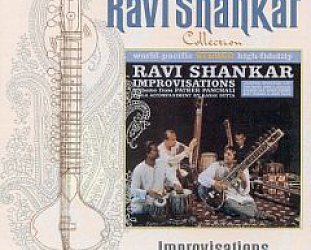
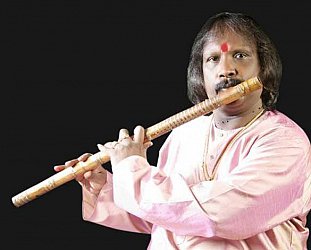
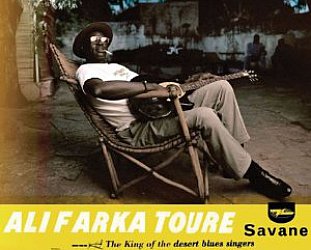
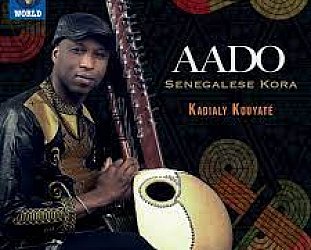
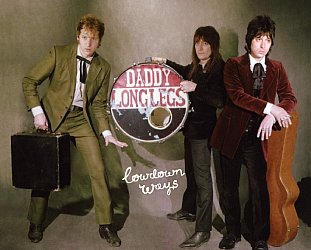
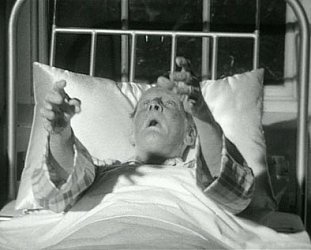
post a comment